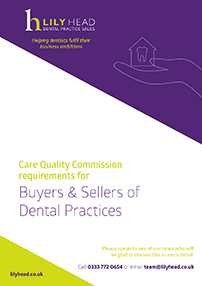Dental Practice owners are facing unprecedented challenges now and, in the months, ahead. Cash flow is King, like never before, and we decided to leverage our network for some focused advice.
We have embraced Jacinda Ardern’s strategy of ‘We must go hard and we must go early’ .
Martin How , our Dental Practice Finance Broker and ex Corporate Director at RBS has been talking to banks and colleagues. We have distilled their feedback into the following action points.
- Maintain an open dialogue with your creditors and most particularly the Bank if you are borrowing on loan, or overdraft or from any asset finance lenders. Every business faces the same issues and your lenders are aware of that and should be more than willing to respond in a practical and constructive way. Do remember that your usual contacts will be under substantial pressure from various directions so important to do all you can to brief them on your situation and explain what help you require.
- If you have medium term debt you can ask the Bank to grant a capital repayment holiday – whilst most will grant 3 months quite readily it may be possible to obtain a period of 6 months (see on for the 6 month plan) or longer if you have a low loan to business value ratio. You may need additional liquidity later in the year to catch up with other payments to third parties so getting the servicing costs of loans down can help. Yes, over the term of the loan you will pay more interest but better to save that cash now – some lenders will insist on the regular repayments being increased to ensure repayment over the original term once the crisis has past but if only 3 or 6 months of additional repayments at the back-end of the loan term then we would expect the lender to show some flexibility.
- Do not overlook asset finance and unsecured loans. The repayment profiles on these products tends to be 5-7 years and the positive impact of a 3-month payment holiday is therefore greater. Most mainstream asset finance lenders have announced they will consider a payment holiday.
- Depending on your credit rating, borrowing track record and available security, your Bank may be willing to grant a short-term overdraft facility. Most lenders use a rule of thumb of one months’ turnover to determine an appropriate maximum limit but worth exploring with the Bank what they would be comfortable with and whether once the crisis has passed they would be willing to fund any residual utilisation onto a longer term repayment loan so that you could repay this additional funding out of long term profits and not short term cash flow which initially will still be under pressure once movement restrictions are relaxed.
- Most of the Banks have now announced details of the Coronavirus Business Interruption Loan Scheme (CBILS). Our understanding is that this has been modelled on the existing Enterprise Finance Guarantee (EFG) scheme and has similar features. Thus the Banks are first required to explore whether the required funding could be provided under a conventional lending product against existing or fresh security (although such additional security would not normally involve a charge on a borrowers primary residence) and only if this was not possible move to consider a loan under CBILS. Funding is still contingent on the lender being able to satisfy themselves that the additional funding is serviceable once the business returns to pre-crisis levels of turnover – note that the repayment profile is relatively short (up to 6 years for loans) and a capital repayment holiday is permissible with the Government meeting the interest costs on the loan only in Year1. Also the Banks should be alerting borrowers to the fact that they remain liable for repayment of 100% of the amount borrowed – the Government guarantees the Bank up to 80% of the outstanding loan in the event of default but only after the Bank has undertaken its usual recovery measures including realisation of security etc.
- Talk to your insurance broker – are you able to claim under your policy for business interruption? Some clients are reporting that this depends very much on the specific wording in the policy so seek specialist advice.
- Are you owed any money? Could this be collected now, or some arrangement reached to repay by instalments to benefit your cash flow.
- Review all non-business critical overheads. If changes can be made the quicker this is done the more cash can be retained. Consider carefully what impact any action will have on the future of the business and any risk related regular payments (insurances etc) should not be cancelled for obvious reasons.
- It is not advisable to cancel any direct debits for loan or finance agreements – this will impact your credit record and could trigger enforcement action by the lender. Open a dialogue with the lender and seek their support in suspending payments officially. Do get official documentary evidence of the agreed suspension or variation in repayment terms with individual lenders and make sure the documents provide clarity around the financial implications of payment holidays and when repayments are due to re-commence.
Finally, be prepared to brief lenders on your financial position and provide them with a documented request for support:
- Collect the last 3 years un-abbreviated financial statements for your business – if you only have a draft copy seek the final signed version from your accountant.
- Review the Management Information you have for business performance since the last financial year end. Your financial statements are useful of course but could be 10 months or more out of date and the lender will be interested in your most up to date run-rate performance. This Management Information might be a full ‘month on month’ and ‘Year to Date’ Profit & Loss Account, run from a SAGE programme for example or just an internally produced Excel spreadsheet showing top-line fee income for each month up to start of the crisis.
- Prepare a summary of your personal means clear – Banks will undoubtedly want to be re-assured that your ‘personal balance sheet’ shows a comfortable surplus of assets over liabilities and that your household budget is sustainable from residual earnings, personal liquidity etc without recourse to the business. Have you any additional security that you can offer the Bank to secure an additional credit line?
- List the actions you have already taken to protect the business and conserve cash-flow – it may be an obvious action to you but the detail will reassure the Bank that you are in control of the situation as much as anyone can be in this unprecedented situation. Have you placed staff on furlough for example and don’t forget to address what Government measures you will be able to take advantage of such as Rates Relief and ‘Time to Pay Arrangements’.
- Provide a snap-shot of the current cash position – list bills to pay and any income that you expect to collect during the forthcoming 3-month period. Using your starting cash position (or overdraft balance) construct a basic cash flow on a week by week basis for the next 3 months so that the Bank can see the extent of the cash-flow and apply an appropriate level of support, hopefully adding a contingency amount when assessing the level of support you require.
- Next, project forward to a future date (say 3 months hence) when the current lock-down and restrictions will hopefully have been eased and construct an action plan for business recovery. Work through sequentially the actions you will take from opening the premises again (if they have been shut), possibly the time and cost of a deep-clean, the staged re-admission of staff, the communications to patients, ongoing precautions and changes to operational procedures etc – all in as much detail as you can both for the lender to assess your plan but also as a check-list for you as you build back to full maintainable trade. Put in your best estimates for week on week patient numbers and the fee income – I would work to a 3 month plan so you end up with a 3 month period until the end of the crisis and then a subsequent 3 month forecast for the period after lock-down restrictions are lifted. You can flex these periods as circumstances dictate and also run different scenarios based on a fast and slow recovery to test the adequacy of the additional financial support you are requesting.
Remember to seek the advice of your professional team – your accountant, your lawyer, your insurance broker, your colleagues and yes competitors, all of whom will have something to contribute in ideas and suggestions.
We appreciate that preparing that plan to show to the Bank may be a little daunting – if you want some help don’t be afraid to ask, there will not be a charge, just delighted to help and get you and other businesses through this crisis.
Above all, stay positive and adopt a confident and measured tone when speaking to lenders – it is not in their interest to see businesses fail and the easier you can make their decision the more likelihood you will get what you need.
Please Contact Us if you would like to talk more about obtaining the #dental practice funding you deserve.






